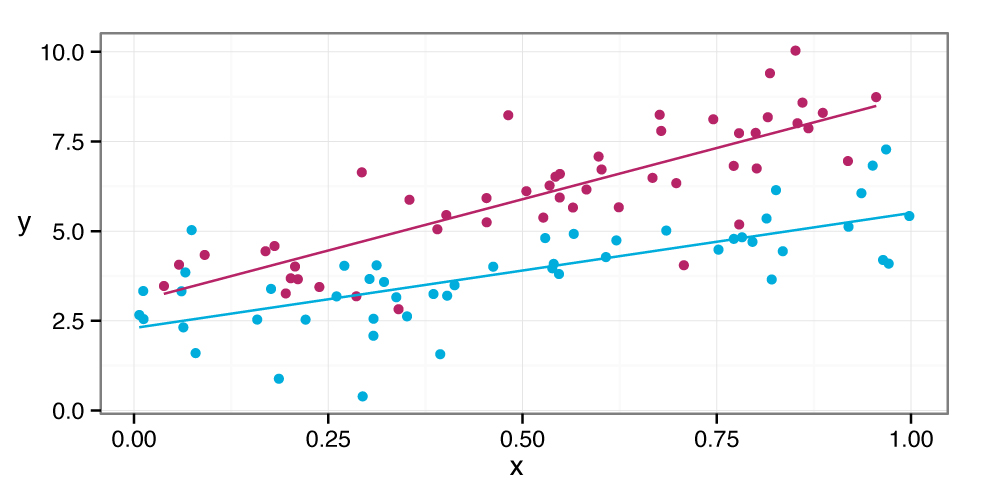Statistical Modeling and Data Visualization
Course summary
The aim of this course is to provide fundamental statistical concepts and tools relevant to the practice of summarizing, analyzing, and visualizing data. This course will build your knowledge of the fundamental principles of biostatistical inference. We will focus on linear regression and generalized linear regression models using a variety of examples and exercises from medical and public health research.

Course Details
Course number: PUBHLTH 690NR
Instructor: Nicholas Reich
Office hours: Wed 9:30-10:30 or by appointment
Prerequisites:
A first course in statistics or biostatistics.
Familiarity with the R statistical programming language.
Working knowledge of basic matrix methods and calculus (optional, but recommended).
Lectures: Tu/Th, 11:15am–12:30pm, LGRC 204
Required books (all freely available online)
Faraway JJ. 2002. Practical Regression and Anova using R.
James G, Witten D, Hastie T, and Tibshirani R. 2014. An Introduction to Statistical Learning.
Diez D, Barr C, and Çetinkaya-Rundel M. 2012. OpenIntro Statistics, 2nd Ed.
Recommended books
Hefferon J. 2014. Linear Algebra (free textboox)
Weisberg S. 2005. Applied Linear Regression, 3rd Edition.
Kutner M, Nachtsheim C, Neter J, and Li W. 2004. Applied Linear Regression Models, 4th Edition.
Hosmer DW and Lemeshow S. 2000. Applied Logistic Regression, 2nd Edition.
Topics covered
Simple and multiple linear regression
Least squares estimation, interpretation and inference about linear regression
Goodness of fit, model diagnostics
Model selection
Inference using bootstrapping
Smooth splines
Logistic regression (introduction)
Longitudinal data analysis (introduction)
Poisson regression (introduction, time permitting)